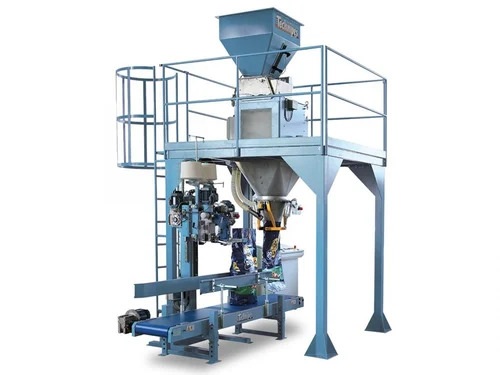1. Net Weighing System: Utilizes a net weighing method to measure the exact weight of the product, excluding the weight of the packaging. This ensures accuracy in the final weight of each bag.
2. Adaptable Packaging Formats: Designed to handle various packaging formats, accommodating different bag sizes, pouches, or containers to meet diverse product and market requirements.
3. Automated Filling: Equipped with automated filling mechanisms, efficiently dispensing the correct net weight of material into each bag.
4. High-Speed Capabilities: Optimized for rapid weighing and bagging, catering to the demands of large-scale production with efficiency.
5. User-Friendly Interface: Modern machines feature user-friendly interfaces, often equipped with touchscreen controls for easy parameter adjustments, operation monitoring, and troubleshooting.
6. Precision Weighing Technology: Utilizes advanced weighing technology to achieve precise measurements, minimizing product giveaway and ensuring consistency.
7. Bag Sealing Mechanism: Includes an automated sealing system to securely seal bags, preventing contamination and maintaining product quality.
8. Quality Control Sensors: Advanced sensors are integrated to detect and address any inconsistencies in the weighing and bagging process, ensuring accuracy and uniformity.
9. Durability: Built for industrial environments, net weighing and bagging machines offer durability and reliability, capable of withstanding prolonged use.
10. Maintenance and Safety: Incorporates safety features and designed for easy maintenance, these machines prioritize operator safety and minimize downtime.
In summary, a net weighing and bagging machine is a critical component in industries requiring precise weighing and packaging of bulk materials. It offers efficiency, accuracy, and reliability in the packaging process for various granular and powdery products.



